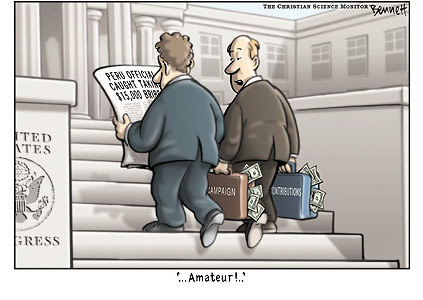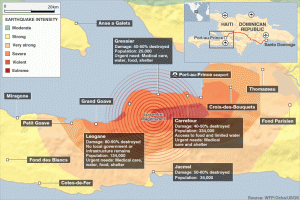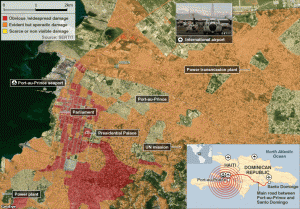Corruption: The Global Disease
by Austin Bay January 20, 2010
The game hit the Internet on July 25, 2007. With a title reminiscent of a Bruce Lee epic or — a much more dangerous allusion for Beijing bureaucrats schooled in tumultuous history — an echo of “Outlaws of the Marsh” (tales of 12th century Chinese Robin Hoods), “Incorruptible Fighter” riveted Chinese cyber-audiences who had an angry yen (or a yuan) for tarring, feathering and then executing corrupt government officials.
 Yes, winning the game entailed eliminating government crooks. China Daily described the game as “the story of a man who fights corrupt officials and purifies himself by improving morality and ethics. After weathering various hardships and weeding out the bad guys, he finally gets to embrace a corruption-free world in which people live peacefully.”
Yes, winning the game entailed eliminating government crooks. China Daily described the game as “the story of a man who fights corrupt officials and purifies himself by improving morality and ethics. After weathering various hardships and weeding out the bad guys, he finally gets to embrace a corruption-free world in which people live peacefully.”
China Daily credited government workers in the city of Ningbo (Zhejiang Province, eastern China) with creating the game. A commenter at StrategyPage.com (writing on Aug. 20, 2007) said this was true and provided additional details: Besides nailing crooked leaders, players could get even with the leaders' kids “and their bikini-clad mistresses.”
 Recipe for a blockbuster. The game had sex, mayhem and graphic revenge extracted from arrogant, thieving officials protected by a Kafka-esque system they controlled.
Recipe for a blockbuster. The game had sex, mayhem and graphic revenge extracted from arrogant, thieving officials protected by a Kafka-esque system they controlled.
Alas, the game itself had no happily ever after. “Incorruptible Fighter” disappeared from the Internet on Aug. 5, 2007. Who shut it down? That was never quite clear, but Internet commenters argued it scorched “exposed nerves.”
Indeed it did. Real world corruption threatens China's government and economy, and its stability. Chinese President Hu Jintao said in October 2007, “Resolutely punishing and effectively preventing corruption bears on the popular support for the party and on its very survival.” While the demise of the Communist Party (which has corrupt and reformist factions) would ultimately benefit China, a Chinese civil war featuring nuclear-armed regional warlords is a geo-strategic nightmare.
Corruption — from petty graft by the county commissioner to the mega-theft of billions by tyrants — is a global affliction. Corruption coupled with systemic lack of accountability produces more than cynicism and anger. In the developing world, it steals the future, condemning millions to poverty.
Phi Beta Iota: Global crime takes in $2 trillion a year. HALF of that goes to pay off corrupt govvernment officials. Lawrence Lessig has stated his intent to focus on outing and reducing corruption, and we join him–corruption is not just about money, but about Deep Secrecy, Sweet-Heart Deals, Informal Privileges, etcetera. We need to either clean up our government at every level, or systematically replace every person who refuses to be transparent with one who embraces transparency in the public interest. That is the heart of Public Intelligence.







